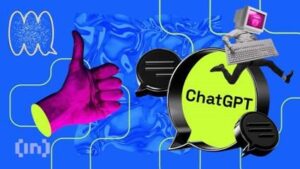Duane Morris Takeaways: Daily news reports about ChatGPT are ubiquitous. Can it replace legal tasks undertaken by humans (with law degrees and state bar licenses)? Can lawyers use it to enhance their legal work? Quite naturally, this raises the issue of whether ChatGPT will make its way into class action litigation – where the stakes are enormous, and the workloads of lawyers involved in those cases are enormous.
ChatGPT And The Legal Profession
Launched in November 2022, Open AI’s ChatGPT has garnered much attention across the globe for its human-like ability to engage in conversations and generate content that is often indistinguishable from what we would expect talented professionals such as journalists, authors, professors (and even lawyers) to produce. But how does this technology work and what does it mean for the legal profession?
GPT stands for generative pre-trained transformer, which is a language model trained on a large corpus of data. Through supervised and machine learning, the model analyzes tons of words, with each word having a score. It then chooses a word with a high score and moves on to the next one. Every choice is determined by complex math and huge amounts of data, which allows it to produce text that is both coherent and accurate (most of the time). So not only is it able to tap into vast amounts of vocabulary and information, but also it understands words in context, which helps mimic speech patterns while dispatching an encyclopedic knowledge.
How smart is ChatGPT? Well news articles report that it is smart enough to pass an MBA exam from a top business school, a Google coding interview, and several law school essay exams, albeit with less than stellar scores.
What Does This Mean For Class Action Litigation?
For the millions who have experimented with ChatGPT, it is easy to be mesmerized by its capabilities and wonder what it means for those white collar professions that many believed were impervious to displacement by AI, particularly lawyers. For instance, when you type in a simple question such as “how do you certify a class action lawsuit?” ChatGPT will respond:
In order for a class action lawsuit to be certified, the court must determine that the class of plaintiffs is sufficiently numerous, that there are common questions of law or fact among the class, that the claims or defenses of the class are typical of the claims or defenses of the individual class members, and that the representative plaintiff(s) will fairly and adequately protect the interests of the class.
This is a far cry from a winning brief, but the possibilities are instantly apparent. And if you talk to attorneys who have asked the program to prepare work product like an insurance reservation of rights letter, they will tell you that they got a surprisingly workable template from which to start the editing process. The technology is so promising that some service providers have rolled out a generative AI tool built on a version of OpenAI’s latest models, which is enhanced for legal work. The tool allows access to legal content with efficiency and cost-effectiveness.
What Are The Pitfalls?
Despite the obvious promise exhibited by ChatGPT’s current abilities, the technology is still in its infancy. In fact, certain results obtained from ChatGPT are often riddled with errors and, in some cases, outright falsehoods. In one instance, it referenced a non-existent California ethics provision. In situations like these, where generative AI appears to simply make things up, and do so with complete and utter confidence, the tech industry has termed this a “hallucination.” With these risks in mind, professional liability carries are issuing warnings to law firms on the professional responsibility and risk management implications of the technology.
What’s Next?
Given the promise of ChatGPT, tempered by the associated risks, corporate counsel are certain to ask themselves what comes next for this technology. Right now, for things like contracts, policies, and other legal documents that tend to be normative, generative AI’s capabilities in gathering and synthesizing information can do a lot of heavy lifting. Therefore, the legal industry should be on the lookout for emerging technologies, like ChatGPT, that can tackle such low hanging fruit, with the immediate benefit being potential cost savings for corporate clients.
As law firms and corporate legal departments contemplate the future of using this tool, it is noteworthy that there is an intellectual property class action pending in federal court in California – J. Doe 1, et al. v. Github, Inc., et al., No. 3:22-CV-06823 (N.D. Cal.) – alleging that OpenAI profits from the work of open-source programmers by violating the conditions of their open-source licenses. Some commentators believe that the future of AI may well hinge on the outcome of this lawsuit, and it will no doubt be monitored closely by those in the legal industry interested this topic.
In the meantime, if attorneys are feeling uneasy about how AI technology is impacting the profession, try asking ChatGPT “Is being a lawyer a good profession?” and one can take solace in ChatGPT’s answer: “Yes, it can be a very rewarding profession. Lawyers can have a big impact in society and can have a great deal of job satisfaction.” The industry will have to wait and see if this answer holds over time.

